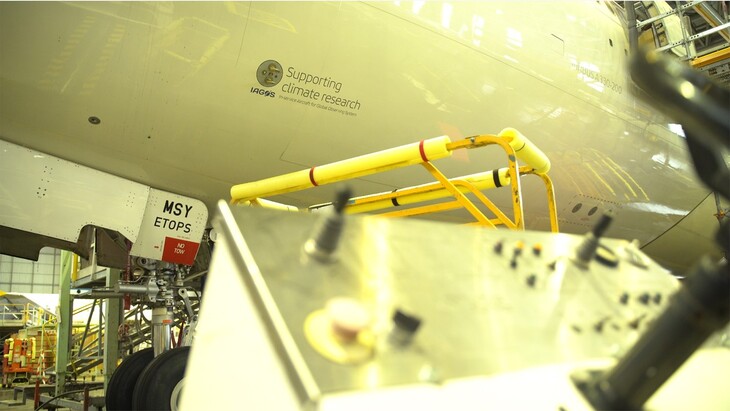
Iberia once again joins the IAGOS project, which brings together the knowledge of scientific institutions with the infrastructure of civil aviation to obtain essential data on climate change and air quality. This data helps understand the composition of the atmosphere for the subsequent development of more accurate climate and weather models.
The Spanish airline installed measurement equipment on one of its aircraft that operate routes with Latin America, which will allow it to analyse the chemical composition (H2O, O3, CO, CO2) and air particles (aerosols and clouds), and evaluate the quality and composition of the atmosphere at high altitudes and over the Atlantic Ocean. In addition, Iberia installed an additional package that includes the measurement of nitrogen oxide (NOx), one of the greenhouse gases with the greatest impact.
The Iberia Airbus A330-200 with registration EC-MSY will carry this device indefinitely. This will allow long-term observations to be made and, at the same time, provide information to meteorological services almost in real time. These measurements will be used to make a more accurate prediction of what the weather conditions will be like in the future, to help adopt policies against climate change.
The system can take measurements from take-off and during the cruising and landing stage. It does not require any type of action on the part of the crew on board since, once on the ground, the data obtained is sent automatically.
The modification of the plane was carried out by the Iberia Maintenance team at its facilities in La Muñoza (Madrid). The assembly of the IAGOS system involves a structural modification in the avionics equipment compartment, consisting of anchors to the primary structure of the aircraft and the installation of supports that house the scientific equipment. In turn, the external intake contains various sensors (temperature, humidity, laser interferometer, and external air intake), taking advantage of a provision in the fuselage that is covered at the factory.
The use of commercial airplanes to carry out these measurements allows us to gather information that would be impossible to obtain through satellites or measurement stations.
Iberia already participated in this project between 2013 and 2020 with an A340-300, which was collecting data in the Southern Cone until its withdrawal, as a result of the fleet renewal that the company is carrying out to opt for more efficient models.
Iberia's Director of Sustainability, Teresa Parejo, said, “One of the pillars of Iberia's sustainability strategy is support for research and innovation projects on climate change to continue reducing our environmental impact. In addition, this aircraft model operates on South Atlantic routes, a key area for the IAGOS project strategy.”
The international non-profit association IAGOS (In-service Aircraft for a Global Observing System), which brings together researchers, universities and meteorological services from Germany, France, and the United Kingdom, combines all this experience with civil aviation infrastructure to obtain information on air quality that is subsequently used by researchers around the world.
Iberia participates in IAGOS along with other airlines such as Lufthansa, China Airlines, Cathay Pacific, and Air France. Iberia was selected to be part of IAGOS because of its role as a key airline in the Europe-Latin America market.